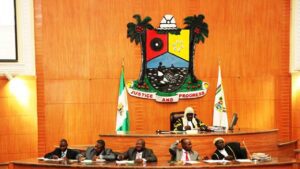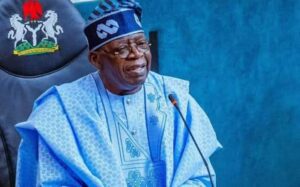
Increase Your Financial IQ
Author: Robert Kiyosaki
Publisher: Business Plus
Reviewer: Goke Ilesanmi
Financial intelligence is one of the fundamentals of financial success. Indeed, many people cannot achieve financial success because they lack this intelligence. It is therefore laudable that Robert Kiyosaki has decided to come to the aid of such people with his book entitled “Increase Your Financial IQ”. Kiyosaki is an investor, entrepreneur and educator whose perspectives on money and investing align with conventional wisdom.
On the question of whether money makes one rich, this author says it is not so. He explains that money alone does not make one rich, adding that we all know people who go to work every day, work for money, make more money, but fail to become richer. Kiyosaki says many of us know of individuals who have lost money investing in the stock market.
According to him, this text is about increasing your financial intelligence, your financial IQ. It is about getting richer by getting smarter and the five basic forms of financial intelligence required to grow richer, reveals this author.
Structurally, this text is segmented into ten chapters. Chapter one is interrogatively entitled “What is financial intelligence?” In this author’s words here, “Money alone does not solve your money problems. That is why giving poor people money does not solve their money problems. In many cases, it only prolongs the problem and creates more poor people.” Kiyosaki says hardwork also does not solve money problems, stressing that the world is filled with hardworking people who earn money, yet grow deeper in debt.
According to Kiyosaki, it is only financial intelligence that solves all money problems. In his words, “In simple words, financial intelligence is that part of our total intelligence we use to solve financial problems… Financial intelligence solves these and other money problems. Unfortunately, if our financial intelligence is not developed enough to solve our problems, the problems persist…”
Chapter two is based on the subject matter of the five financial intelligence quotients (IQs). Kiyosaki educates that the five basic financial IQs are: Making more money (Financial IQ No 1); protecting your money (Financial IQ No2); budgeting your money (Financial IQ No3); leveraging your money (Financial IQ No4) and improving your financial information (Financial IQ No5).
As regards difference between financial intelligence and financial IQ, he says, “Most of us know that a person with a mental IQ of 130 is supposedly smarter than a person with an IQ of 95. The same parallels can be drawn with financial IQ. You can be the equivalent of a moron when it comes to financial intelligence… Financial intelligence is that part of our mental intelligence we use to solve our financial problems. Financial IQ is the measurement of that intelligence. It is how we quantify our financial intelligence. For example, if I earn $100,000 and pay 20 per cent in taxes, I have a higher financial IQ than someone who earns $100,000 and pays 50 per cent.” Kiyosaki explains that both of them have financial intelligence, but the one that keeps more money has a higher financial IQ.
In chapters three to seven, the five financial IQs already discussed in chapter two, are elaborately examined respectively.
Chapter eight is christened “The integrity of money”. According to Kiyosaki here, “‘Integrity’ is an interesting word. I have heard it used in many different ways and in different contexts. I believe it is one of the more misused, confused, and abused words in the English language. Many times I have heard someone say, ‘He has no integrity’, or ‘If they had any integrity, they would be more successful’. Someone else might say, ‘That house has integrity of design’.” This author says before discussing the integrity of money, it is necessary to define Integrity. Kiyosaki says “Integrity”, according to Webster, can be defined as “Soundness” (an unimpaired condition); “Incorruptibility” (firm adherence to a code of especially moral or artistic values) and “Completeness” (the quality or state of being complete or undivided).
This expert educates that just as health can break down from a literal lack of integrity, so can wealth be compromised by lack of integrity. “Instead of disease or death, which comes from a breakdown in the body’s integrity, symptoms of a lack of financial integrity are low income, crippling taxes, high expenses, excessive debt, bankruptcy…,” expatiates this author. He says the integrity of all the five financial IQs is needed to grow rich, stay rich and pass wealth on to generations after you.
In this author’s words, “When a person is struggling financially, one or more of these financial intelligences is out of whack, financial integrity is not sound, and the person is not complete. For example, I have a friend who earns a lot of money as a manager of a small business. Her problem is she has no protection against taxes, plus she does not budget wells, spends impulsively to buy clothes and goes up in price.”
In chapters nine and ten, this author beams his intellectual searchlight on the concepts of developing your financial genius and developing your financial IQ.
As regards style, this text is a prototype for stylistic excellence. For instance, most of the illustrations are based on the financial experiences of the author himself, thus lending credibility to the text. The language is simple and the presentation very didactic. Kiyosaki generously employs graphical embroidery to achieve visual reinforcement of readers’ understanding and make the layout of the text eye-friendly.
However, conceptual repetition is noticed in chapters three to seven where the five financial IQs already discussed in chapter two are further examined. Also, the word “Intelligence” whose grammatical behaviour in the dictionary shows that it is an uncountable noun as indicated by the symbol “U” against it, is still used in this text in a countable way on pages 150 and 151 where we have “Intelligences”.
In spite of the few errors, this text is fantastic. It is a must-read for those who want to accomplish financial freedom and abundance through concrete financial education.
GOKE ILESANMI (FIIM, FIMC, CMC), CEO of Gokmar Communication Consulting, is an International Platinum Columnist, Professional Public Speaker, Career Mgt Coach and Certified Mgt Consultant. He is also a Book Reviewer, Biographer and Editorial Consultant.
Tel: 08056030424; 08055068773; 08187499425
Email: [email protected]
Website: www.gokeilesanmi.com.ng



